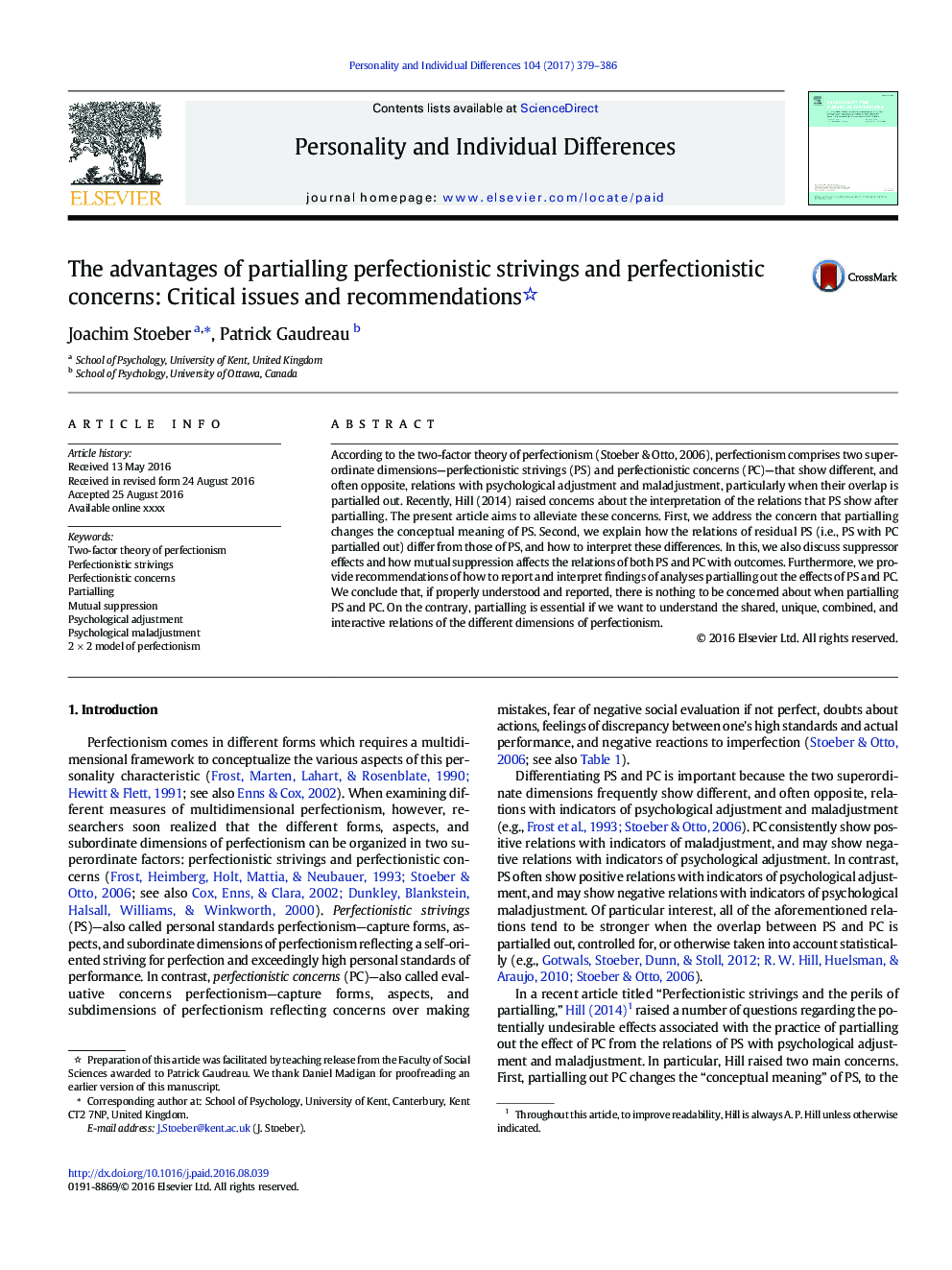| Article ID | Journal | Published Year | Pages | File Type |
|---|---|---|---|---|
| 7249399 | Personality and Individual Differences | 2017 | 8 Pages |
Abstract
According to the two-factor theory of perfectionism (Stoeber & Otto, 2006), perfectionism comprises two superordinate dimensions-perfectionistic strivings (PS) and perfectionistic concerns (PC)-that show different, and often opposite, relations with psychological adjustment and maladjustment, particularly when their overlap is partialled out. Recently, Hill (2014) raised concerns about the interpretation of the relations that PS show after partialling. The present article aims to alleviate these concerns. First, we address the concern that partialling changes the conceptual meaning of PS. Second, we explain how the relations of residual PS (i.e., PS with PC partialled out) differ from those of PS, and how to interpret these differences. In this, we also discuss suppressor effects and how mutual suppression affects the relations of both PS and PC with outcomes. Furthermore, we provide recommendations of how to report and interpret findings of analyses partialling out the effects of PS and PC. We conclude that, if properly understood and reported, there is nothing to be concerned about when partialling PS and PC. On the contrary, partialling is essential if we want to understand the shared, unique, combined, and interactive relations of the different dimensions of perfectionism.
Related Topics
Life Sciences
Neuroscience
Behavioral Neuroscience
Authors
Joachim Stoeber, Patrick Gaudreau,
